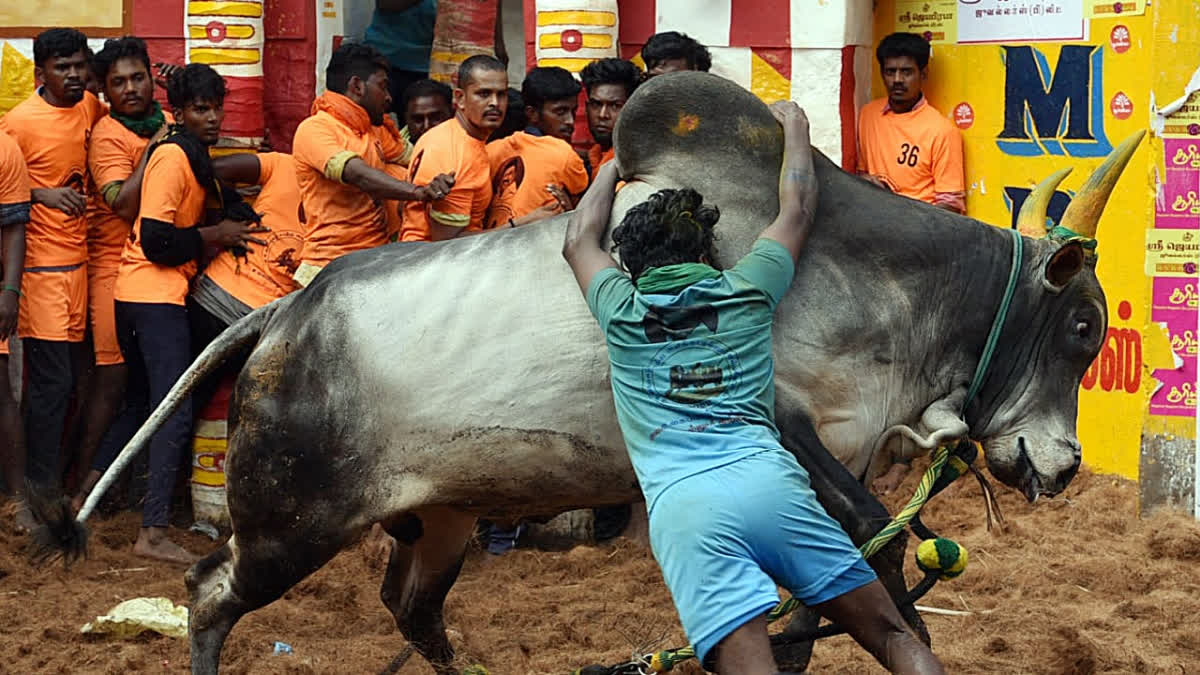Chennai:Jallikattu, a bull-taming sport traditionally played in Tamil Nadu, is set to commence on Tuesday, January 14 in Avaniyapuram in the Madurai district followed by similar events in Palamedu and Alanganallur neighbourhoods on January 15 and 16 respectively.
Jallikattu, the literal meaning of which is coins tied to the horns of a bull, is part of Tamil cultural history. The sport held during the Tamil harvest festival of Pongal is meant to showcase bravery, strength, and skill.
Believed to be practised for more than 2,000 years, Jallikattu involves releasing a bull from its enclosure and participants attempting to grasp and hold onto the animal's hump for a distance of approximately 15-20 meters or three jumps. The challenge is to maintain their grip long enough to emerge victorious and claim a prize. If no participant succeeds, the bull is declared the winner.
The sport is dangerous as both participants and spectators have suffered grievous injuries over the years. Besides, in recent years, Jallikattu has been at the centre of a controversy involving debates about animal welfare, cultural heritage, and state politics.
The Madras High Court first banned the practice in 2006 after a spectator was killed by a bull. In 2014, a two-judge bench of the Supreme Court also banned Jallikattu, citing animal welfare concerns. In 2017, the Tamil Nadu government temporarily lifted the ban following protests in support of the sport. The state government also amended the Prevention of Cruelty to Animals Act 1960 to allow Jallikattu.
Six years later, in May 2023, the Constitution Bench of the Supreme Court upheld the amendments made by Tamil Nadu, Karnataka, and Maharashtra governments to the PCA Act permitting Jallikattu, Kambala and other traditional bull-taming sports. The Bench also overruled the 2014 ruling of a two-judge Supreme Court bench.
Signifying the importance of Jallikattu, the Tamil Nadu government, during the hearings in the Supreme Court, called it "not merely an act of entertainment or amusement but an event with great historic, cultural and religious value".
